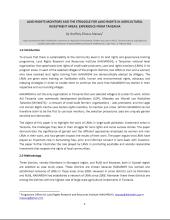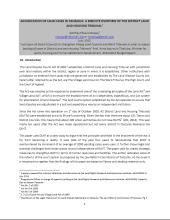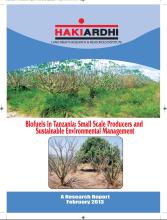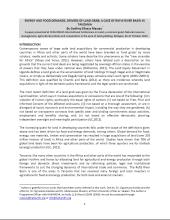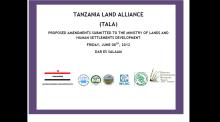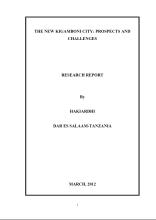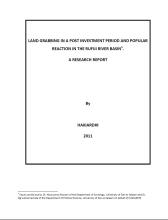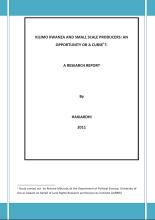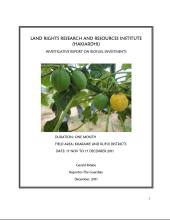Land Library Search
Through our robust search engine, you can search for any item of the over 73,000 highly curated resources in the Land Library.
If you would like to find an overview of what is possible, feel free to peruse the Search Guide.
/ library resources
Showing items 1 through 9 of 24.To ensure that there is sustainability at the community level in its land rights and governance training programme, Land Rights Research and Resources Institute (HAKIARDHI), a Tanzanian national level organization that spearheads land rights of small-scale producers, uses land rights monitors (LR
This paper uses District Land and Housing Tribunal (DLHT) as a case study to argue that the principle conceived in the enactment of the law that established the tribunal is far from becoming a reality.
The purpose of this study was to assess the bio-energy sector in Tanzania and to critically inquire the threats, benefits and opportunities to smallscale producers and sustainable environment management.
Contemporary waves of large scale land acquisitions for commercial production in developing countries in Africa and other parts of the world have been branded as ‘land grabs’ by many scholars, media and activists.
A comprehensive legal analysis highlighting gaps and recommendations in the four selected land related legislations in Tanzania.
In early 2008 the government of Tanzania through the Ministry of Lands, Housing and Human Settlements Development –MLHHSD, initiated a project to develop a new city at Kigamboni area in Temeke district of Dar es Salaam region.
What has been the reaction of the rural producers and other land holders over these demands and actual land acquisitions? What does their reactions means in relation to ongoing land grabbing? While these questions are important this study was motivated by two major concerns.
This study sought to follow up the implementation of the Kilimo Kwanza initiative with the view to establish reliable facts on its significance to small-scale producers, mainly peasants and pastoralists.
Increasing investments in biofuel production follow a shift of energy demand,in developed nations from fossil fuel to bio energyto run machines. Consequently, there has is an accelerated influx of investors from the Europe, Asia and Americain quest for productive and fertile lands.

